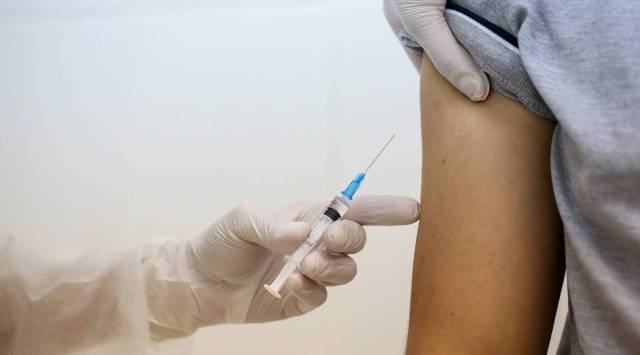As vaccines that are expected to finally defeat the novel that has sickened 67 million people and killed over 1.5 million around the world seems increasingly close, the high-level expert group working on the logistics of administering it to Indians has firmed up some key decisions.

“Bharat Biotech has applied for the restricted emergency use. The subject expert committee will look at all the three vaccine candidate (Pfizer, Serum and Bharat Biotech), on the basis of which a final decision will be taken by the Drug Controller General of India (DCGI),” senior government source said.
Story continues below this ad
The American pharma giant Pfizer was the first to seek emergency use authorisation on Saturday for its mRNA candidate. Over the course of next year and beyond, India will carry out the largest vaccination drive in its history.
The national expert committee on vaccine administration drew up its final blueprint on logistics after “97 per cent of government facilities and 70 per cent of private facilities” submitted data on frontline healthcare workers, the first priority group to be vaccinated.
The Indian Express had earlier reported that as per data submitted by states to the expert committee, 1 crore frontline healthcare workers are likely to receive the first dose of the vaccine early next year.
Top government sources told The Indian Express that the guidelines on administration of the vaccine are based on the crucial question of the likelihood of an adverse event being reported after each dose. “Therefore, in the guidelines, we have finalised that there will be three separate rooms in each vaccination centre,” a source said.
Story continues below this ad
“In the first room, the beneficiary will have to wait; the second room is where the actual vaccine administration will take place; and finally, they will be directed to the observation room, where they will have to sit for 30 minutes because some of the adverse reactions occur during this period,” the source added.
Sources said that since each vaccination will take at least 30 minutes, only 100 shots will be administered in each session. “The CoWin IT system allows vaccination sessions to be created, and vaccination sites to be fixed. Once that is done, each vaccination session will be for 100 vaccinations. After 30 minutes, the vaccinators will report the adverse event, if any, on the digital platform,” sources said.
Data on frontline healthcare workers collected by states are currently in the process of being uploaded on the CoWin platform for verification and certification, the the sources said. “States have collected data on healthcare workers on Excel sheets. This data is now being uploaded… There are different levels; one where data are being uploaded, verified, and certified at the level of the state; once certified, the data are available with the Centre, and any changes thereafter will require the state to seek specific permission,” sources said.
Story continues below this ad
Data on 2.39 lakh vaccinators, many of whom are Auxiliary Nurse Midwives (ANMs), are also being uploaded by the states on the digital platform, the sources said.
Having decided that recipients of the vaccine will be monitored for at least 30 minutes, the expert group has asked states to expand the reporting network of AEFI (Adverse Event Following Immunisation) surveillance.
District Immunisation Officers have been asked to prepare lists of government and private hospitals, and to “contact” the head of the institution to identify a nodal officer for AEFI reporting. This nodal officer is expected to conduct a one-hour sensitisation meeting with doctors, and train them on recording vaccination histories in OPDs, casualty and in-inpatient admissions. Medical officers will record “minor, serious, and severe” adverse events in an “AEFI register”, which will be reviewed by the nodal officer weekly.









